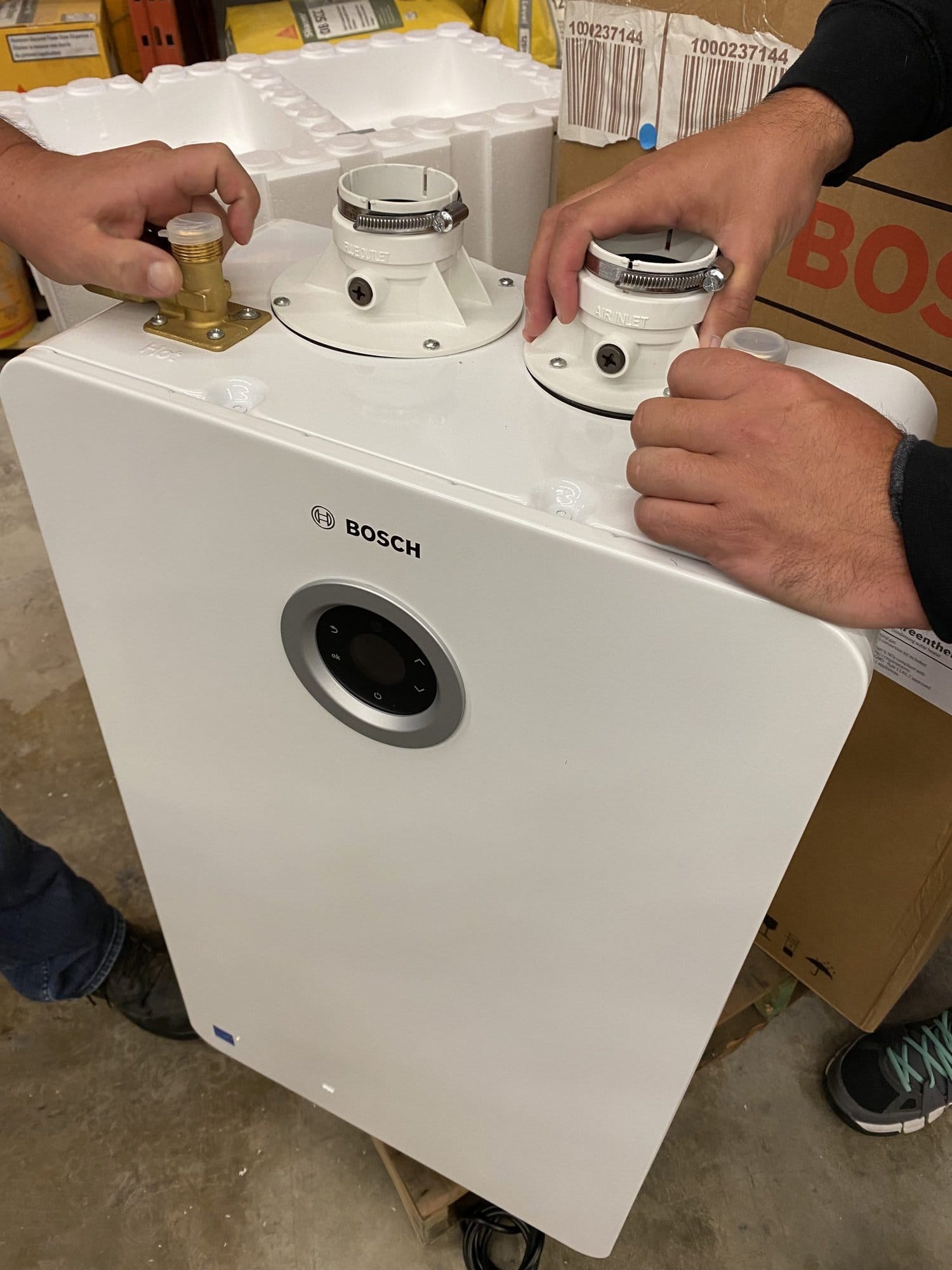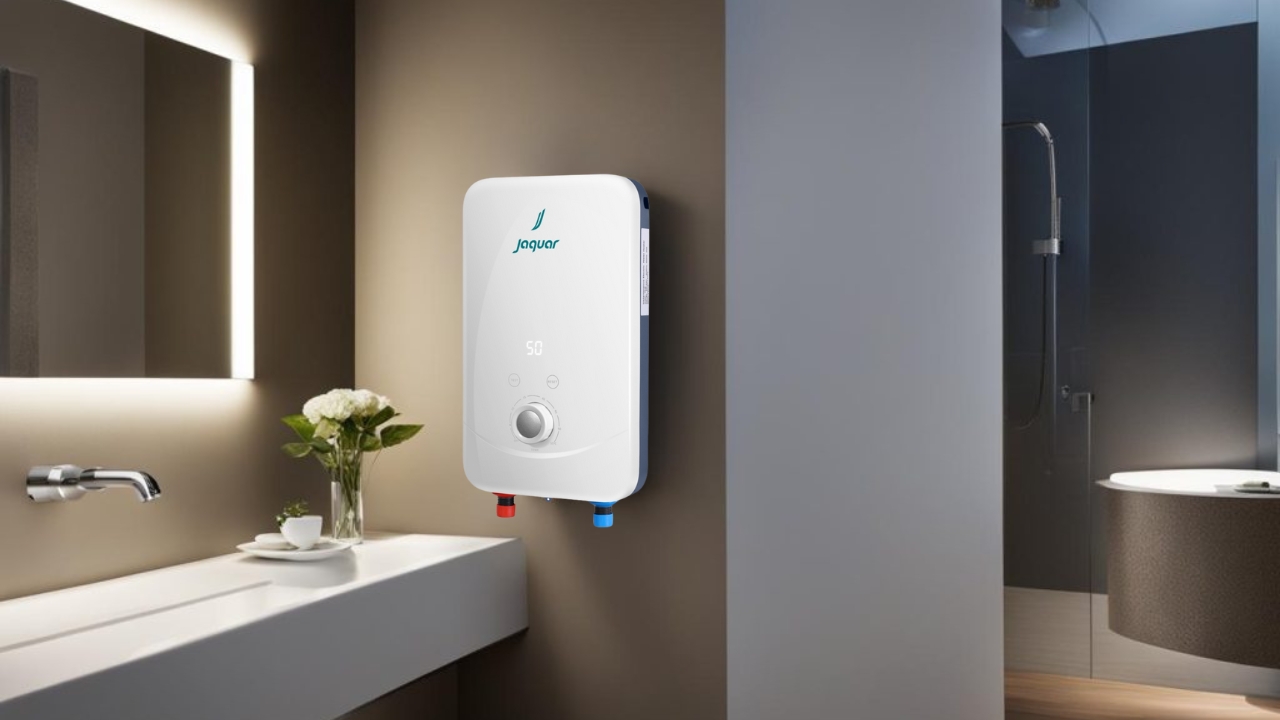Exploring The Gains Of Continuous-Flow Water Heaters
Exploring The Gains Of Continuous-Flow Water Heaters
Blog Article
The content underneath in relation to Six Benefits of a Tankless Hot Water Heater is immensely motivating. Read it for yourself and decide what you think of it.

In a globe where convenience and efficiency reign supreme, it's not a surprise that home owners are constantly on the lookout for smarter ways to handle their home's power consumption and convenience. One innovation that has gradually obtained popularity is the tankless water heater. Yet just what makes these systems stand apart from the traditional tank-based versions a lot of us matured with? Let's dive in and check out the advantages of tankless water heaters, assisting you determine if it's time to make the button in your house.
Intro
Image this: you step into the shower after a lengthy day, expecting a relaxing cascade of hot water, just to be greeted by icy beads since the last individual used it all up. Noise acquainted? Conventional hot water heater store a set amount of warm water, suggesting you're at the mercy of that storage tank's supply. Tankless systems, on the other hand, heat water on demand. Say goodbye to going out mid-shower, say goodbye to fumbling with schedules simply to make certain warm water is available.
Comprehending Tankless Water Heaters
What Are Tankless Water Heaters?
Tankless hot water heater, sometimes called on-demand or instant water heaters, give hot water just as it's needed. Rather than saving gallons of pre-heated water, these devices kick right into action the moment you activate the faucet. Water travels through a warmth exchanger, warming up in real-time, suggesting you get an uninterrupted flow of hot water without the need for a big storage tank resting lazily by.
How Do They Differ from Traditional Systems?
Standard heaters hold a reservoir of warm water, using energy to maintain that container at a constant temperature. Tankless units eliminate the standing supply, minimizing lost energy and the cumbersome impact of a big cyndrical tube. Essentially, you're updating from a "accumulation" mindset to a "made-to-order" strategy.
Typical Types of Tankless Devices
Tankless water heaters generally are available in two ranges: gas and electric. Gas versions have a tendency to supply higher circulation prices, perfect for bigger homes, while electrical versions typically serve smaller homes and are commonly less complicated to install. Furthermore, some systems are made for point-of-use (serving one fixture) while others can take care of the whole home's hot water demands.
Secret Advantages of Tankless Hot Water Heater
Energy Performance and Expense Financial Savings
No more warming a giant storage tank's worth of water and keeping it warm all day. Tankless heating systems reduce standby power losses, which can decrease utility expenses. While the initial expense may be greater, the long-lasting savings frequently justify the investment.
3. Space-Saving Layout
If your home is short on storage space, eliminating the bulky tank maximizes valuable space. Tankless units are portable and can frequently be mounted on walls, concealed in corners, or mounted in tight energy wardrobes without monopolizing the entire room.
4. Longer Lifespan
A well-maintained tankless water heater can outlive its tank-based relative. Conventional tanks could last 10-15 years, while tankless designs can keep chugging along for two decades or even more, making them a strong financial investment with time.
1. Limitless Warm Water Supply
Ever had to set up showers so every person obtains their reasonable share of hot water? With tankless, that ends up being a distant memory. As long as the heater's flow capacity isn't surpassed, you can take back-to-back showers without becoming a popsicle.
5. Improved Water Quality
Storing water in a container can occasionally lead to sediment build-up or a somewhat "off" taste. With tankless systems, fresh water is heated instantly, minimizing the possibilities of sediment accumulation and possibly providing cleaner-tasting water.
Factors to consider Prior To Changing
Though the benefits are compelling, it's important to consider a few aspects prior to fully dedicating.
Reviewing Your Home's Water Use Patterns
If your home concurrently makes use of numerous components with high warm water need, make certain the system's circulation price satisfies your needs. Knowing your use patterns aids you select the appropriate size and sort of tankless heating unit.
Upkeep and Treatment Tips
Tankless systems are fairly reduced upkeep, but they aren't set-it-and-forget-it devices.
Regular Cleansing and Descaling
Tough water minerals can develop in the warmth exchanger, influencing effectiveness. Regular descaling (typically suggested every year) maintains the unit running at peak performance.
Yearly Expert Evaluations
A yearly checkup from a professional makes sure small concerns are caught early. They'll evaluate the system's performance, search for leaks, and aid preserve ideal effectiveness.
Preliminary Investment Costs
Tankless heaters generally include a greater in advance cost. In between the unit itself and potential installment alterations, the preliminary cost might provide you sticker shock. Yet keep in mind to view it as a lasting investment.
Installation Demands
Relying on your home's framework, you might require extra electrical capacity or gas line upgrades. Guarantee you comprehend the installation demands and speak with a specialist to stay clear of surprises.
Making Certain Appropriate Ventilation
For gas versions, proper air flow is vital to safely remove exhaust gases. Ensure venting systems are clean and properly mounted to stop any kind of possible security threats.
Contrasting Different Brands and Versions
Not all tankless hot water heater are produced equivalent.
Researching Reputable Producers
Search for credible brands with a background of generating high quality systems. A reliable maker typically provides far better client assistance and longer service warranties.
Setup: Do It Yourself or Specialist?
While some home owners relish tackling jobs themselves, tankless installation could not be the very best time to burst out the toolbox.
Pros and Cons of DIY Installment
A do it yourself set up can save cash, but it comes with threats. Inaccurate setup can bring about ineffectiveness or safety issues. If you're handy and have experience, it might be viable-- yet wage caution.
Checking Out Reviews and User Feedback
Customer reviews and responses from next-door neighbors or good friends who have gone tankless can supply useful understandings. Often, real-life experiences can be more informing than advertising brochures.
When to Call a Specialist Plumbing Professional
For the majority of, calling a professional ensures whatever's done appropriately. A specialist plumbing professional understands regional codes, sizing needs, and venting parameters, minimizing the danger of accidents.
Taking full advantage of Effectiveness
You've bought a tankless unit-- now optimize its efficiency.
Optimal Temperature Level Settings
Most people establish their units between 120-140 F. Adjusting the temperature level can boost comfort and financial savings. Experiment to discover a pleasant place that doesn't waste energy.
Pairing with Low-Flow Fixtures
Want to stretch your device's capacities? Consider installing low-flow showerheads and taps. They lower water use, enabling your tankless system to deliver a consistent stream of warm water without straining.
Environmental Impact
Tankless water heaters line up with greener living goals.
Minimized Carbon Impact
By utilizing much less power and just home heating water as required, tankless systems can decrease your home's carbon impact, lowering your ecological impact.
Conserving Natural Resources
Much less power consumption and much less wasted warm water equate right into less natural resources being utilized, an environmental win-win.
Who Benefits Most from Tankless Heating systems?
The beauty of tankless heating units is that they can suit a selection of families.
Big Family Members vs. Single Passengers
Large family members may love the countless warm water supply, while single residents value the power cost savings from not warming a whole tank for just a single person's early morning shower.
House Owners with Limited Space
If your home is short on square video, losing the cumbersome container frees up room for various other essentials-- or maybe just more breathing space.
Eco-Conscious Customers
Going tankless aligns with eco-friendly worths, guaranteeing you're not squandering power or resources.
Future Fads in Tankless Hot Water Heater
The world of home devices is ever-evolving, and tankless water heaters are no exemption.
Advancements in Innovation
R&D is continuously enhancing heat exchangers, making systems more effective and durable. Future designs might be even quieter, more portable, and much better suited for differing climates.
Smart Home Assimilation
Visualize adjusting your water heater's temperature through an app or receiving upkeep notifies on your phone. As wise home tech advancements, we'll see more connection and comfort.
Final thought
Choosing a tankless water heater is more than simply updating your home's hot water system; it's buying long-term convenience, energy efficiency, and a greener lifestyle. By considering your house's water usage, being mindful of installation needs, and dedicating to regular maintenance, you can enjoy a stable stream of warm water without the baggage of a bulky storage tank. As modern technology advances, you can eagerly anticipate also smarter, extra efficient tankless solutions that not only make your life simpler however likewise benefit the world.
5 Benefits of Tankless Water Heaters
Save Valuable Space
Since tankless water heaters do not have a massive 40+ gallon tank of water, they are considerably smaller and can fit in more narrow spaces in your home.
If you are working with limited square footage, a tankless water heater will still provide you with the hot water you need while taking up significantly less space in your home. While the exact size of a tankless water heater varies depending on the brand, some are as small as a carry-on suitcase.
Endless Supply of Hot Water
While a traditional water heater preheats and stores your water in the tank, tankless water heaters do not rely on a reservoir system.
This means that they do not run out of hot water like traditional water heaters since they make hot water as needed. Traditional water heaters need to stop and reheat water when the tank inevitably runs out, but tankless water heaters do not have this issue.
Provide Warm Water On-Demand
As mentioned above, tankless water heaters do not preheat a certain amount of water and then store it in a massive tank to be used later. An advantage of installing a tankless water heater includes water being heated instantly whenever you turn on the faucet.
When you turn on the water, it will travel through a heat exchanger in the unit and be heated with either an electric element or a natural gas burner. Gone are the days of having to ration out your hot water to make sure that you do not run out.
Longer Life Cycle
Not only do tankless water heaters provide an endless supply of hot water for your home whenever you want it, but these units tend to have a longer lifespan than water heaters with tanks.
Tanked water heaters have an average lifespan of around 10 years, as the tank is prone to corrosion, leading to serious issues. In comparison, tankless water heaters can last for around 15 to 20 years with the proper maintenance and tune-ups.
Energy Efficient
Compared to traditional water heaters, tankless water heaters are a more energy-efficient water heating option for your home. Tank water heaters must heat and reheat the water stored in the tank throughout the day, even if you are not home.
This energy use adds up over time, leading to an increase in your energy bills and added strain on your unit. A benefit of buying a tankless water heater includes saving money since it only operates when you turn on the hot water. Since it only heats up as needed, this can decrease your energy bills and save you money in the long run.
https://callrandazzo.com/blog/5-benefits-of-tankless-water-heaters/

I'm just very interested in Pros and Cons of Tankless Water Heater and I really hope you enjoyed the new article. Sharing is caring. You just don't know, you may very well be helping someone out. Kudos for being here. Kindly come by our website back soon.
Call Today Report this page